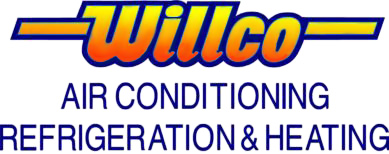We spend a lot of time inside. In fact, the Environmental Protection Agency (EPA) has determined being inside accounts for 90% of our time. However, the EPA also has determined your indoor air can be three to five times dirtier than outside your home.
That’s because our houses are tightly sealed to boost energy efficiency. While this is great for your utility costs, it’s not so good if you’re amid the 40% of the population with respiratory allergies.
When outside ventilation is insufficient, pollutants such as dust and volatile organic compounds (VOCs) can get stuck. Consequently, these pollutants may aggravate your allergies.
You can boost your indoor air quality with fresh air and routine housework and vacuuming. But if you’re still having issues with symptoms during the time you’re at home, an air purifier might be able to provide assistance.
While it can’t get rid of pollutants that have settled on your couch or flooring, it might help clean the air traveling across your home.
And air purification has also been scientifically confirmed to help lower some allergic symptoms, according to the American College of Allergy, Asthma and Immunology. It can also be appropriate if you or a family member has lung trouble, like emphysema or COPD.
There are two models, a portable air purifier or a whole-home air purifier. We’ll examine the advantages so you can learn what’s right for your house.
Whole-House Air Purifier vs. Portable Air Purifiers
A portable air purifier is for a lone room. A whole-house air purifier accompanies your heating and cooling system to treat your complete house. Some models can purify independent when your heating and cooling unit isn’t operating.
What’s the Best Air Purifier for Allergies?
Seek a purifier with a High Efficiency Particulate Air (HEPA) filter. HEPA filters are used in hospitals and deliver the most comprehensive filtration you can buy, as they trap 99.97% of particles in the air.
HEPA filters are even more beneficial when used with an ultraviolet (UV) germicidal light. This dynamic combination can destroy dust, dander, pollen and mold, all of which are common allergens. For the ultimate in air purification, evaluate equipment that also has a carbon-based filter to reduce household smells.
Avoid using an air purifier that generates ozone, which is the primary element in smog. The EPA cautions ozone may worsen respiratory issues, even when discharged at low settings.
The Allergy and Asthma Foundation of America has made a list of questions to think over when getting an air purifier.
- What can this purifier take out from the air? What doesn’t it extract?
- What’s its clean air delivery rate? (A better figure means air will be cleaned more rapidly.)
- How often does the filter or UV bulb need to be replaced]? Can I do that without help?
- How much do new filters or bulbs cost?
How to Lessen Seasonal Allergy Symptoms
Want to receive the {top|most excellent|best] performance from your new air purification unit? The Mayo Clinic advises taking other steps to decrease your exposure to seasonal allergy triggers.
- Stay in your home and keep windows and doors sealed when pollen counts are high.
- Have someone else cut the lawn or pull weeds, since these jobs can aggravate symptoms. If you have to do these chores alone, consider using a pollen mask. You should also rinse off right away and put on clean clothes once you’re completed.
- Avoid drying laundry outside.
- Run air conditioning while indoors or while you’re on the road. Consider installing a high efficiency air filter in your house’s heating and cooling equipment.
- Balance your home’s humidity saturation with a whole-house dehumidifier.
- Hardwood, tile or linoleum are the ideal flooring kinds for lowering indoor allergens. If your home has carpet, use a HEPA filter on your vacuum cleaner.
Let Our Pros Handle Your Indoor Air Quality Needs
Want to take the next step with installing a whole-house air purifier? Give our specialists a call at 862-345-6896 or contact us online to get an appointment. We’ll help you locate the ideal system for your house and budget.





